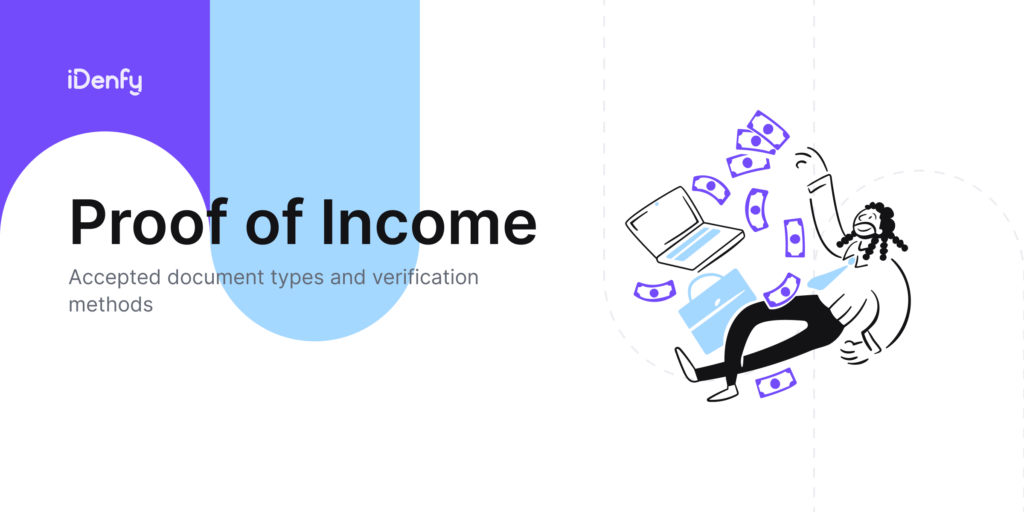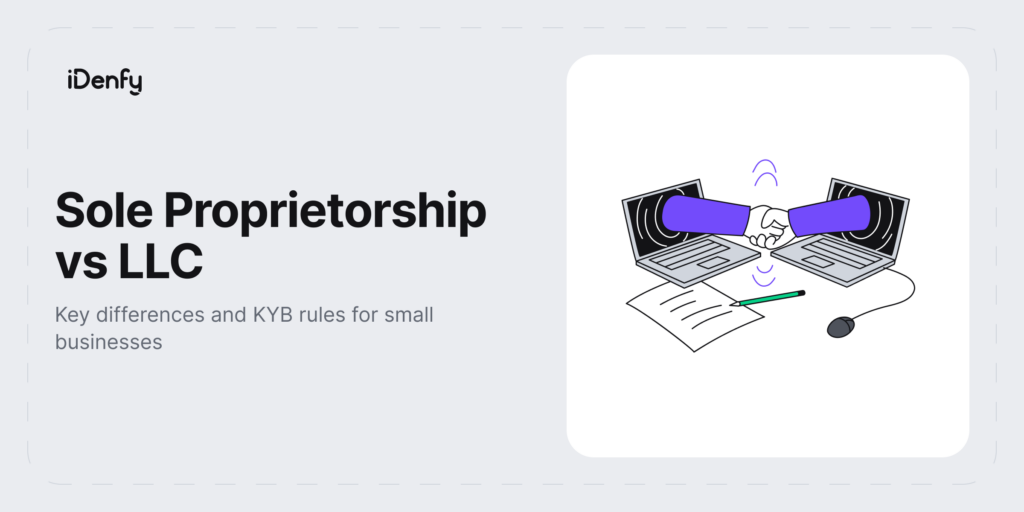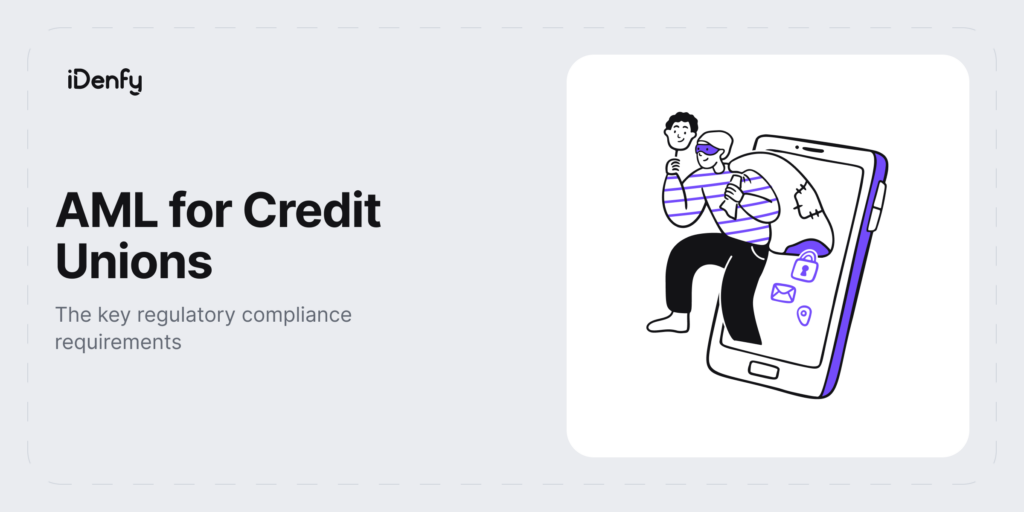Gambling is not something that started a few decades ago. If we look at its history, we will know that its origin dates back to the Paleolithic period, approximately 2.5 million years ago to 10,000 B.C. Fast forward to today, most online casinos and lotteries are regulated, which means that they are required by law to check a) if the user is of age and b) if they have an ID document that validates their identity online.
Online gambling operators rely on regulatory compliance to a huge extent. KYC and AML help operators avoid hefty fines, build user trust, and provide a safe environment for players. Gambling regulations constantly change to counter new fraud techniques, and operators should stay updated to avoid penalties. ID verification tools make it easier for operators to meet regulatory requirements and put more focus on user experience.
That’s because the gambling sector is considered to be high-risk. It includes various fraudulent activities such as identity theft, money laundering, chargeback fraud, and other crimes that include more security and integrity threats to various gambling and iGaming establishments. Fortunately, identity verification solutions with face verification features can help gambling businesses eliminate such issues.
Let’s get into more detail below.
Gambling’s History and Evolution
Gambling has been going through many changes in history. It was common in ancient cultures, like in Mesopotamia, with the invention of the six-sided dice around 3000 B.C.
In the UK, horse racing has become a very popular activity for many centuries, with crowds attending in large numbers to bet on the race outcome. Today, online gambling, otherwise known as iGaming, grows exponentially with digital platforms, representing an entirely new market that reaches much farther than traditional casinos.
Related: The Importance of KYC in Gambling and Casinos
The Importance of Identity Verification for the Gambling Industry
Online platforms are very vulnerable to different types of fraudulent activities and money laundering. So, there is no doubt that fraudsters increasingly use stolen identities or fake documents to create or access accounts. Most bad actors attempt to open an account using someone else’s identity or fake documents to use the platform to siphon money from the pockets of unaware users.
To avoid any kind of harm to their customers and themselves, such gamblers must follow the policy of Know Your Customer (KYC) and Anti-Money Laundering (AML) for gambling. It guarantees that betting companies identify their customers, confirm their legal age for gambling users, and further prevent excessive gambling. These measures help protect the platform from fraud and build trust in legitimate users. As a bonus, by adding automated ID verification, gambling platforms can enhance security without frustrating delays for customers.
Consequently, ensuring that players are genuinely who they claim to be and are of the appropriate age to gamble is essential. Simultaneously, leveraging data intelligently and using automated ID verification for gambling is key to minimizing customer friction in the gaming experience.
Common Types of Fraud that the Online Gambling Industry Faces

Since the first-ever online casino, InterCasino, launched in 1996, hackers have started inventing tricks to defraud online users. Numerous times, cybercriminals have presented severe risks to online casinos.
For example, in 2019, a group of Chinese hackers hacked some Southeast Asia-based online gambling and betting websites. According to a report, hackers stole the company’s database and source code but not money, suggesting that the hackers’ aim was espionage.
Some common fraud types the online gambling industry is dealing with include:
1. Multiple Accounts
The fraudsters create a lot of account pairs with perjured details, letting one account win while others intentionally lose. Online casinos suffer losses because of this fraud, like other industries with high financial stakes, if fraudsters use this platform’s vulnerability to maximize rewards, including iGaming platforms or e-commerce sites.
Typically, fraudsters focus on high-end products or high-risk financial institutions due to the potential for significant rewards. Criminals often prioritize services or products with easy fund movement or credit offerings, as the higher the financial risk, the greater the potential reward for them.
2. Money Laundering
Every year, hundreds of online casinos lose their licenses because they don’t take the necessary steps to prevent the use of their platforms to launder money. Online Gambling companies must make sure that their platforms are not being used to launder ill-gotten money.
Online casinos deal with large sums, making them very easy targets for money laundering. Fraudsters deposit illicit funds into online casinos, gamble to either win or lose and then withdraw cleaned money disguised as winnings. Online gambling companies must be keen on KYC and AML policies and practices so they don’t lose licenses to illegal activities.
Related: Examples of Money Laundering and Prevention Methods
3. Credit Card Fraud
Cybercriminals also steal credit card information to bet, buy in-game items, luxury items, or fund fake accounts at gambling sites. In poker, fraudsters can transfer stolen funds into fake accounts and intentionally lose to other players to launder money into targeted accounts. This is one of the most common scams across poker and other iGaming platforms.
4. Chargeback Fraud
Also known as friendly fraud, chargeback fraud abuse refers to a situation where users dispute legitimate charges to online gambling sites. Fraudsters will use this to their advantage by claiming they did not authorize a charge and knowing many gaming platforms do not contest the chargeback because they don’t want to ruin any relationships with the card issuers.
How Can Gambling Platforms Solve the Growing Number of Fraudulent Attacks?
Understanding the methods and implications of fraud is essential for online gambling platforms to develop effective countermeasures and maintain the integrity of their financial transactions.
Some of the most popular measures to overcome security challenges and prevent fraud for online gambling sites include:
- Enhanced ID verification. Implementing robust identity verification checks, such as biometric face verification, can help deter unauthorized account access and subsequent chargeback fraud.
- Transaction monitoring. Using advanced monitoring systems to track unusual betting patterns and high-risk activities can aid in identifying potential fraud.
- Collaboration with payment processors. Working closely with payment processors by sharing information related to fraud cases to make sure known fraudsters can’t slip in.
- Educating players online. Providing clear information to users about the consequences of chargeback fraud and the platform’s policies can act as a deterrent.
Related: How to Build an Effective AML Program?
How Does Identity Verification Help Prevent Fraud in Online Gambling?
Online gambling platforms and other financial institutions are subject to very strict KYC and AML rules. If they are ignored, it leads to hefty fines; such was the case when a gambling company had to pay the UK Gambling Commission a fine of $10 million for failure to meet the set requirements for KYC.
So, identity verification for online casinos is not only a legal requirement for gambling firms but can also play a significant role in preventing fraud and scams in the gambling industry. When a robust identity verification solution is used to conduct KYC checks, it naturally clamps down the potential for fraud.The adoption of an extensive identity verification solution will help gambling companies, one way or another, to verify whether users’ identities are real or not, improving security at the same time as regulatory compliance.
Identity checks determine whether a user’s identity matches and what’s held in official registries. They are also helpful in terms of verifying critical information about exact age, physical address, and other important information. The introduction of automated KYC meets all regulatory requirements and decreases the risk of fraud, enabling actual users to enjoy a much safer gambling experience.
So, it’s safe to say that proper identification enables gambling firms to have sound KYC and onboard new users with genuine identities.
If you’re looking for a trustworthy identity verification partner as an online gambling firm, you can rely on iDenfy. We offer KYC, KYB and AML RegTech solutions. To know more about our automation services, feel free to contact us.




